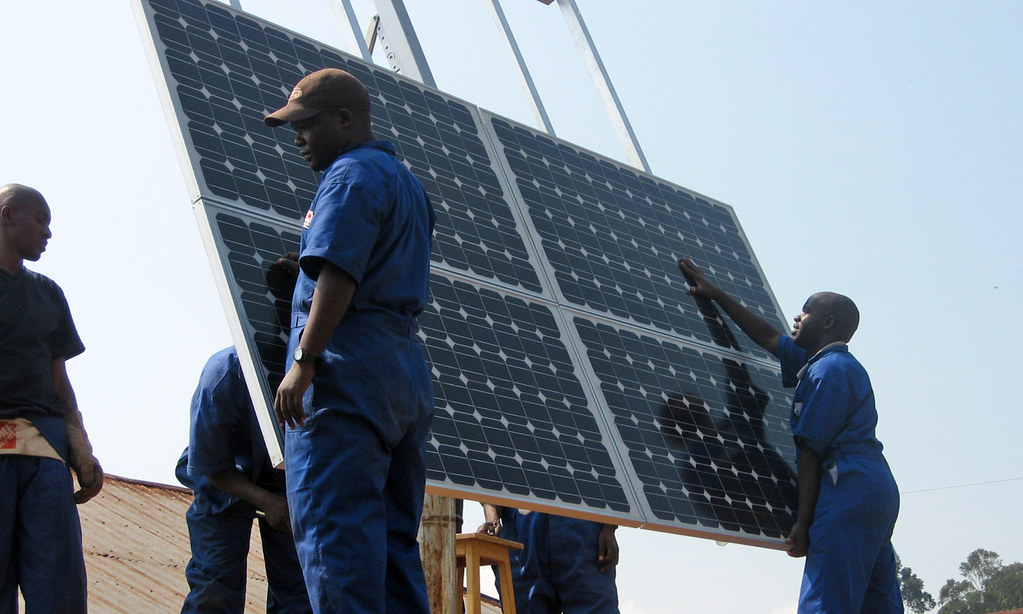In the quest for sustainable living, Northland has emerged as a beacon of eco-friendly energy solutions, with solar power leading the charge. The region’s commitment to renewable energy is not only a response to global climate change challenges but also a testament to the local community’s dedication to preserving their pristine environment. This article explores the landscape of solar power options in Northland, highlighting the benefits, challenges, and future prospects of adopting solar energy in this sun-drenched part of the world.
The Solar Power Landscape in Northland
Northland’s geographical location and climate conditions are ideal for solar energy production. With an average of over 2,000 hours of sunshine per year, the region offers an abundant resource for generating clean, renewable energy. This potential has not gone unnoticed, with a significant increase in both residential and commercial solar power installations over recent years.
The local government and various environmental organizations have been pivotal in promoting solar energy. Initiatives such as subsidies for solar panel installations and educational campaigns on the benefits of renewable energy have significantly contributed to a growing awareness and adoption of solar power in Northland.
Benefits of Solar Energy in Northland
The adoption of solar power brings numerous benefits to Northland, both environmentally and economically. Firstly, it significantly reduces carbon emissions, contributing to New Zealand’s goals for a carbon-neutral future. Solar Power Northland systems produce clean energy from the sun, decreasing reliance on fossil fuels and mitigating the impact of climate change.
Economically, solar power can offer savings on electricity bills for homeowners and businesses alike. The initial investment in solar panels is offset by the reduction in energy costs over time. Additionally, with the option to sell excess energy back to the grid, solar power can become not just a cost-saving measure but also a potential income source.
Solar energy also enhances energy independence for Northland. By generating their own electricity, residents and businesses are less vulnerable to energy price fluctuations and supply disruptions. This independence is particularly crucial in remote areas where access to the national grid may be limited or unreliable.
Solar Power Options in Northland
Northland offers a variety of solar power options tailored to different needs and preferences. These include:
- Residential Solar Panels: Ideal for homeowners looking to reduce their carbon footprint and electricity bills. Modern solar panel systems are efficient, durable, and can be designed to complement the aesthetics of any home.
- Commercial Solar Solutions: Businesses in Northland can benefit from larger solar installations, reducing operational costs and showcasing their commitment to sustainability.
- Community Solar Projects: These allow individuals who may not have the means or the suitable location for solar panels to invest in a communal solar power system, sharing the benefits of renewable energy.
- Off-grid Solar Systems: For those in remote locations, off-grid systems provide a reliable and self-sufficient source of energy, reducing dependence on diesel generators and the grid.
- Solar Water Heating: An alternative or complementary option to photovoltaic panels, solar water heaters are an efficient way to reduce electricity or gas usage by using solar energy to heat water.
Overcoming Challenges
While the potential for solar power in Northland is vast, there are challenges to its widespread adoption. The initial cost of installing solar panels can be a barrier for some households and small businesses. However, financial incentives, subsidies, and innovative financing options such as solar leasing are making solar energy more accessible.
Intermittency is another challenge, as solar power generation depends on sunlight. To address this, advancements in battery storage technology are making it possible to store excess energy generated during the day for use at night or during cloudy days, ensuring a consistent energy supply.
The integration of solar power into the existing energy infrastructure also requires careful management. Investment in smart grid technologies and energy management systems is necessary to handle the variable output from solar panels and maintain grid stability.
The Future of Solar Power in Northland
The future of solar power in Northland is bright. Ongoing advancements in solar technology promise more efficient and cost-effective solar solutions. Innovations such as transparent solar panels and solar tiles are expanding the possibilities for integrating solar power into buildings and urban environments.
Community engagement and education will continue to play a crucial role in promoting solar energy. As awareness grows, so does the willingness of individuals and businesses to invest in solar power, driving further adoption and innovation.
Moreover, Northland has the opportunity to lead by example in the transition to a sustainable energy future. By continuing to invest in and advocate for solar power, Northland can showcase the practical and environmental benefits of renewable energy, inspiring other regions to follow suit.
Conclusion
Solar power represents a key pillar in Northland’s strategy for a sustainable and eco-friendly energy future. With its abundant sunshine, supportive community, and innovative approaches to renewable energy, Northland is well-positioned to harness the power of the sun to meet its energy needs.

